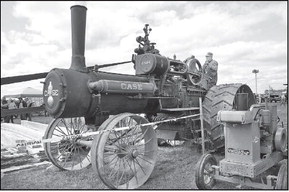Work group to revisit assemblies ordinance


By Kevin O’Brien
A proposal to regulate large outdoor assemblies that was pulled from last month’s Marathon County Board agenda is headed back to a work group for further revisions.
Originally, the assemblies ordinance was referred to three standing committees for more discussion, but county supervisors have said the task of revising the proposal is going to start with a work group composed of representatives from multiple county departments and five county board members. That group started meeting last July to overhaul an existing ordinance that is outdated and possibly unenforceable due to constitutional concerns.
The work group presented its initial recommendation to supervisors earlier this year, and it was referred to the full board for possible approval in February, but it was taken off the agenda after concerns and questions were raised.
At an Infrastructure Committee meeting on March 7, two supervisors who serve on the work group expressed opposite opinions on the need for an assemblies ordinance.
Supervisor Joel Straub said he had no involvement in drafting the new ordinance because he did not attend any of the work group meetings, but after talking to several people about the proposal, he believes the ordinance is unnecessary. He noted that the Edgar Steam Show, which would be one of the only existing events to fall under the ordinance’s purview, has been well run for years and shouldn’t be subject to additional regulation.
“I think it’s an overreach by government to impose any rules on it,” he said. “I’m in favor of removing the ordinance all together.”
Supervisor John Robinson said he “couldn’t disagree more,” noting that the county has been talking for years about how to deal with large events that may pose health and safety risks and require additional county services without compensation. He said the proposed ordinance is the result of many “thoughtful conversations” among county staff and supervisors.
“I think it goes a long way to try to minimize problems and address the concerns,” he said.
Committee chairman Craig McEwen said he agrees with Robinson on the need for providing guidance to county staff and event organizers planning large events.
“Right now, if we don’t have anything, they don’t know who to go to, they don’t know who to ask,” he said.
Still, Straub said the county is not required to have an assemblies ordinance and he thinks it’s a waste of time to draft “something that is not needed.”
“Obviously everybody here is concerned about public health and safety, but you don’t have to micromanage everybody’s movement at every time of the day,” he said.
McEwen said three members of the public raised legitimate concerns about the ordinance at the board’s last educational meeting, but he wants the work group to address those issues first before the committee takes any action.
The work group has not yet scheduled a meeting to revisit the ordinance.
Other business
n Highway commissioner Jim Griesbach updated the committee on a new state requirement to catalog and inspect all culverts and bridges between 6 and 20 feet long. He said the number of these structures within Marathon County is significantly lower than what was estimated by the Wisconsin Department of Transportation (WisDOT), which published a list of “potential” structures in need of inspection in each county (the list includes a disclaimer that the numbers are “most likely over-estimates”).
Instead of 2,600 structures, the total number is more likely between 820 and 1,040. Griesbach said the county highway system has between 220 and 240 structures that fall within the 6 to 20 feet range, while local municipalities are believed to have a total of 600 to 800.
Griesbach said most of the county’s townships are opting to hire a private consultant to inventory their structures, instead of asking the highway department to do it.
Also, Griesbach said the county will be paying a bridge inspection company $350 per structure to do the required inspections. The state will reimburse the county at that same amount, so it will have a “net zero” impact on the budget.
n State Sen. Cory Tomczyk, chairman of the Committee on Transportation and Local Government, and David Stertz, manager of WisDOT’s Bureau of Highway Maintenance, spoke to the committee about inadequate funding in the state’s Routine Maintenance Agreement (RMA) with the county. Under the RMAs, the state pays county highway departments to maintain state highways, but Griesbach said there’s often not enough money allocated to get all of the needed work done, especially for summer maintenance projects.
WisDOT will always pay the county’s bills for state highway work, but he said the yearly allocations are not keeping up with costs.
Stertz said he has put in multiple requests for more funding, but they are consistently “pared down.” He said part of the problem is that the agency hasn’t seen double-digit inflation since the early 1980s.
Supervisor Gary Gisselman said the county should send a letter to state officials outlining the backlog of work left undone due to funding shortfalls.
Sen. Tomczyk said he looks forward to getting a letter from the county so he can work with the WisDOT on the issue.
“I will do what I can to help, because things have changed over 10 years, and we need to be responsible for that,” he said.
CASE IN POINT -The Edgar Steam Show, which displays antique farm equipment like this steam-operated Case tractor, would be one of only two existing events that would fall under the purview of a new assemblies ordinance being considered by Marathon County officials.


